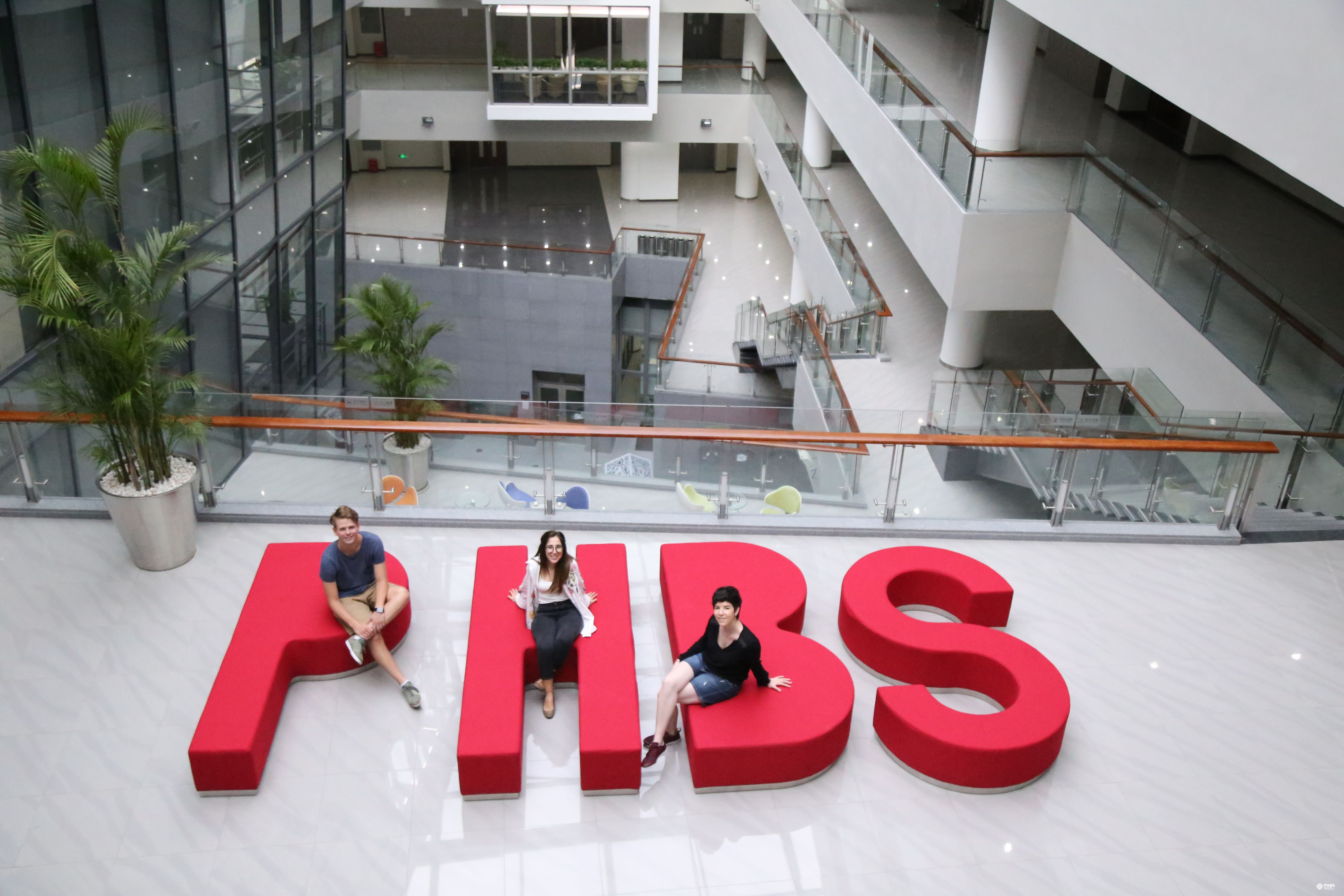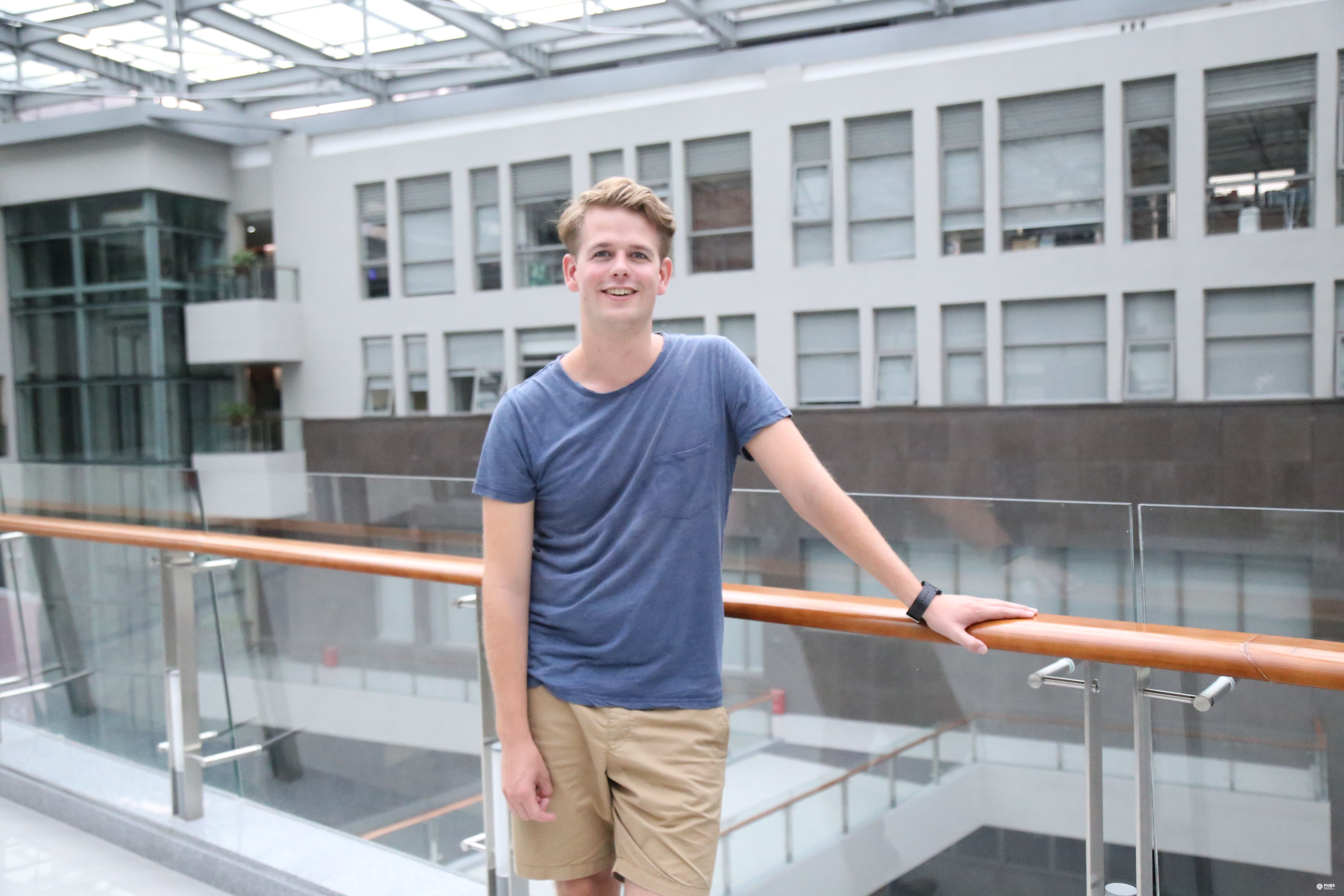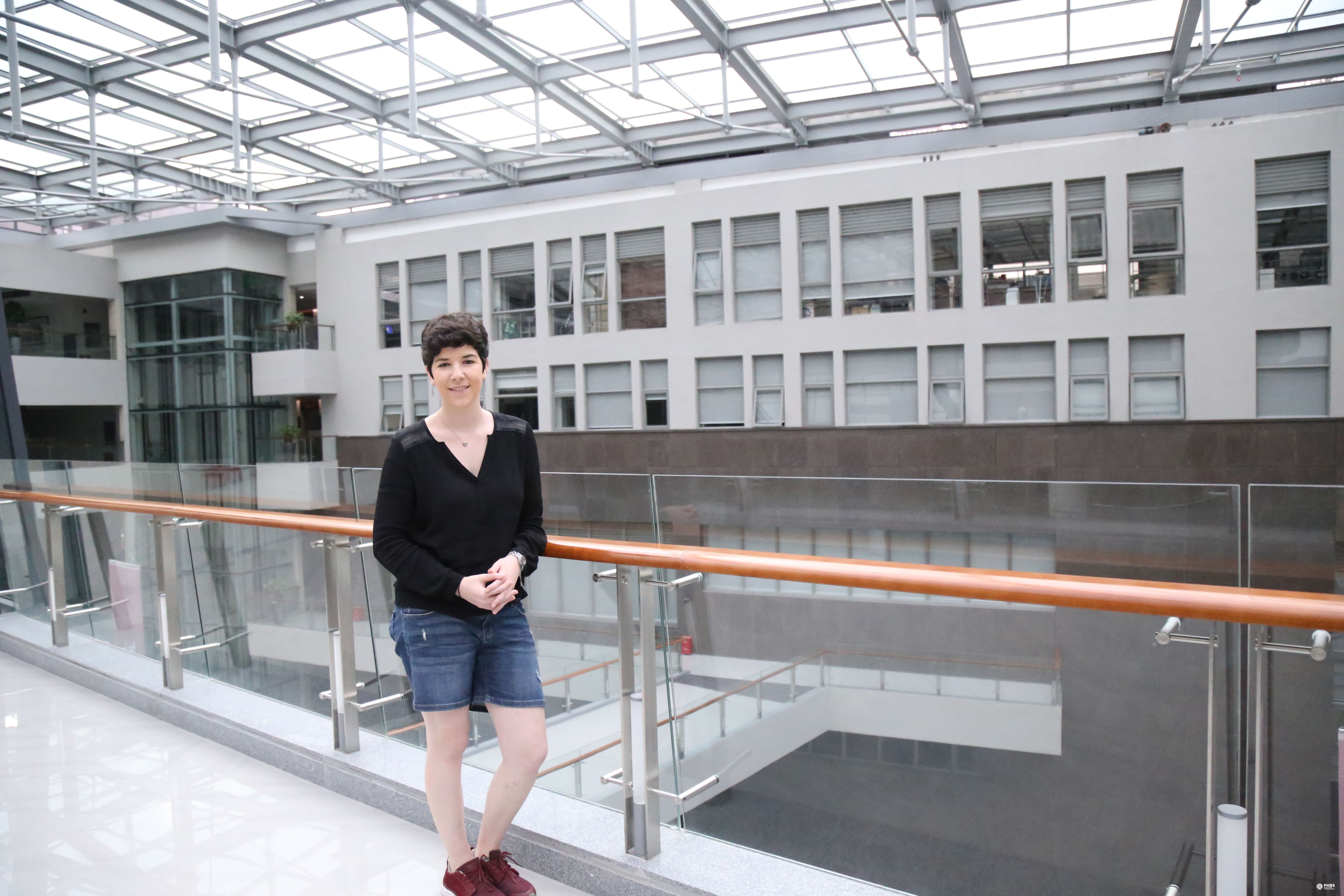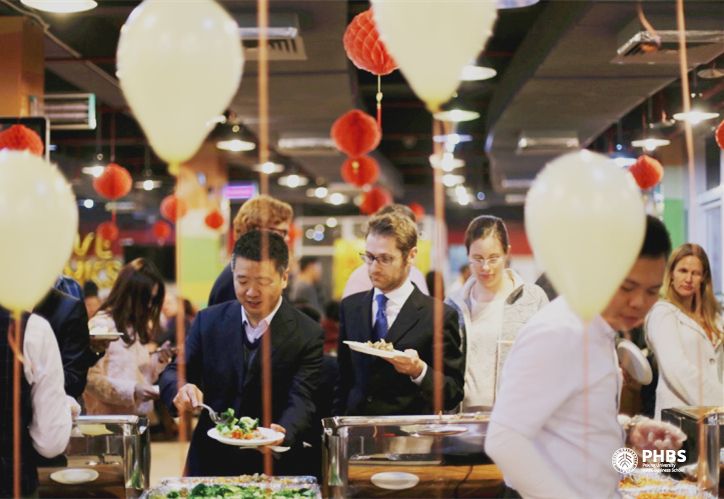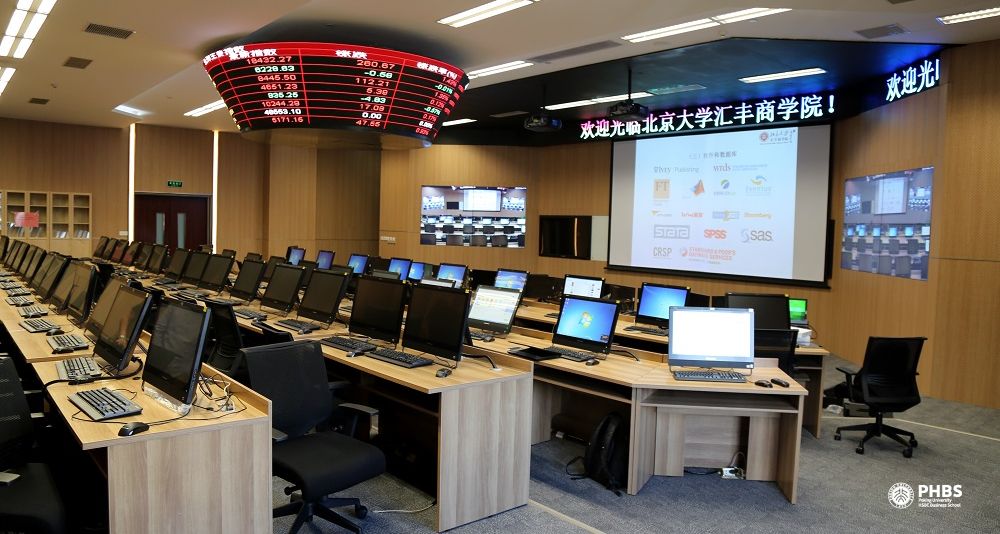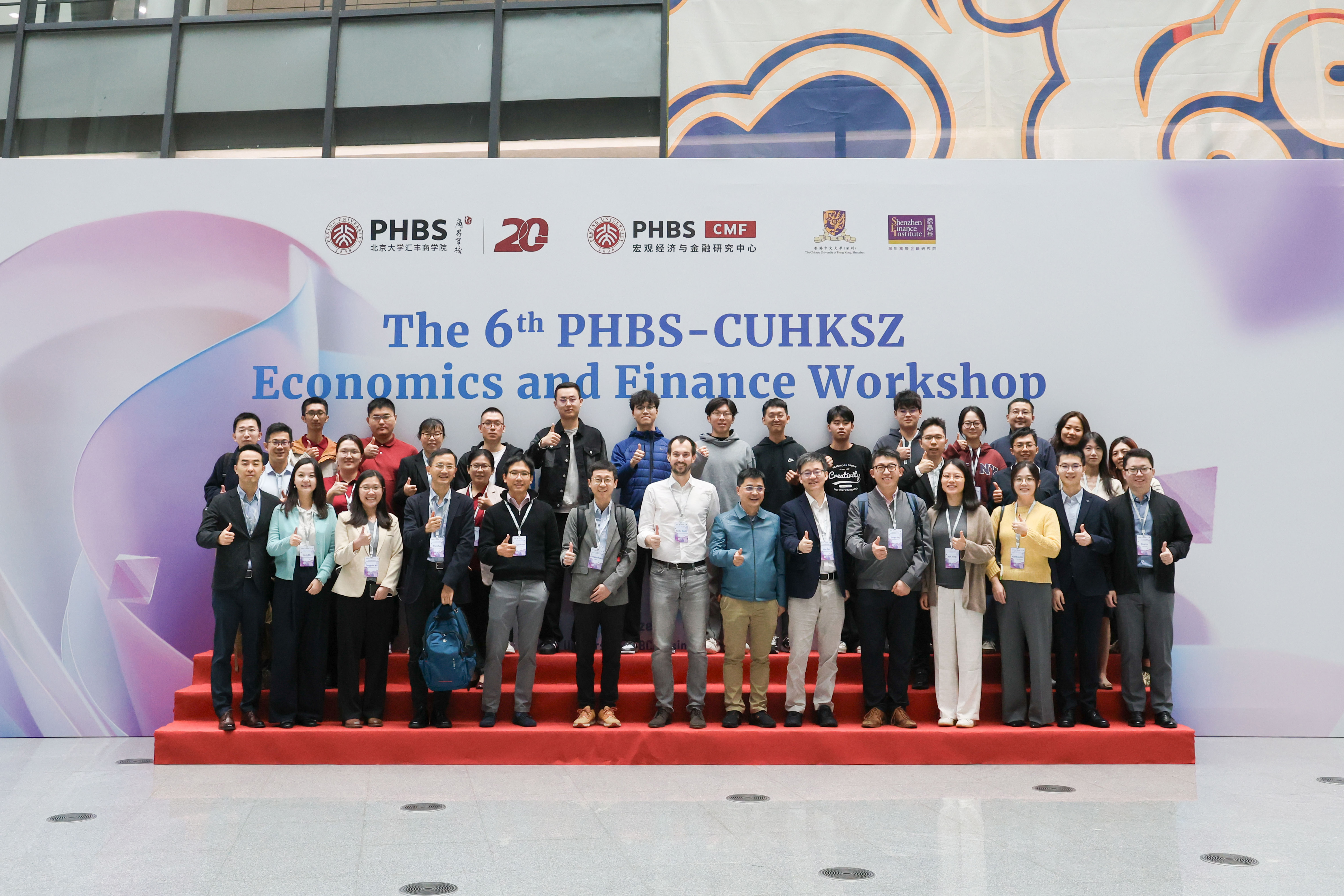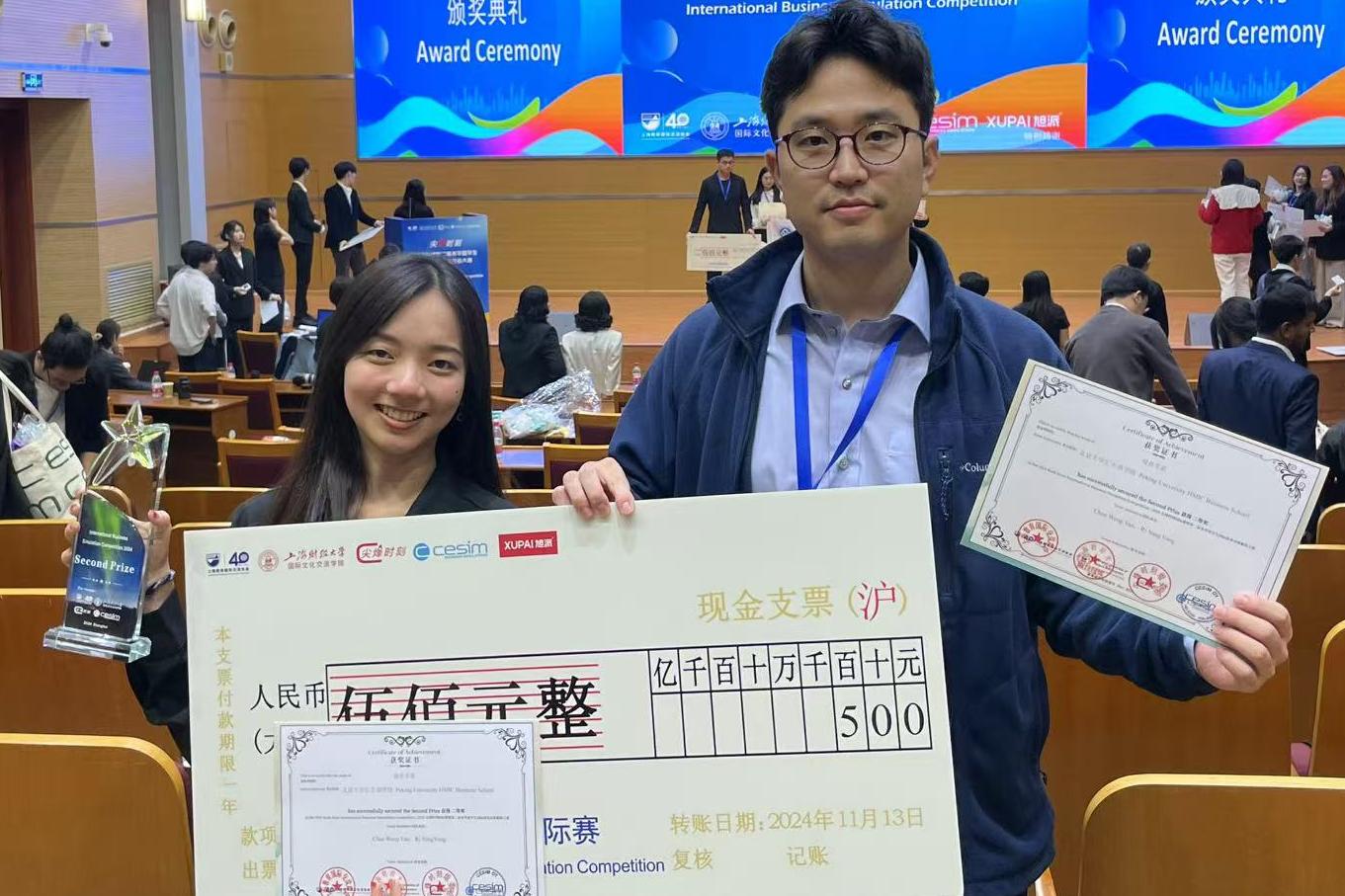By Seimar Solano Nelson
Edited by Annie Jin
The summer vacation is coming to an end. Second year students sigh in relief having made it through the first year at Peking University HSBC Business School (PHBS), new students smile to the camera at their upcoming new start at PHBS, and our spring exchange students pack their bags and hug their new friends goodbye. Before leaving for the summer vacation, I sat down with three of the most smiling exchange students of this spring semester to discuss just about everything.
Coming to China
❈❈❈
Eirik Stengel said his main driver to come to China was due to the fact that he will work for a Chinese-owned company in his home country, Norway. “To me it is very important getting to know Chinese culture in business and the country.” But his interest for China goes beyond acquiring knowledge for his job. In fact, Eirik came to China for the same reason many people come: to see first-hand how China became an economic superpower. “Its difference, culturally, but also its dominance in the world economy.”
Eirik Stengel
The perception of a dominant role of China is also shared by Mathilde Bouvier of France, who says that although China’s GDP is slowing down, it is “a big country and, what I always like to say, one out of five people in the world is Chinese. Therefore, if you want to do business in today’s world, you need to understand the Chinese culture.” But it is not just about learning about the Chinese, but taking that big step – or long flight. “Nowadays we have a lot of things about China in the media and for me it was coming to discover and forge my own perception about the country.”
Mathilde Bouvier of France
“I needed a new challenge and escape the European reality, how the other side of the world does things and build a strong bond with the Chinese,” said Beatriz Rodrigues of Portugal. Beatriz wanted to jiggle up her mind, a change of reality, and what she didn't ask for, but still got, like all of the foreigners in China, is a feeling of helplessness. Like my friend said last week “Living in China is not an easy thing, but it is the best thing.”
Beatriz Rodrigues of Portugal
The Motherland whacks you in the face with a feeling of helplessness and puts to test those soft skills you thought you had mastered just to let you know you really hadn’t. Students come to PHBS to learn from professors graduated from the best education institutions around the world, but outside the teaching building real life teaches us just as much valuable lessons. Navigating through uncertainty, managing your self-awareness, communicating without a common spoken language in between, interpreting microinequities, and patience to understand and insert yourself in the way China does what it does in its own very unique way.
Challenges
❈❈❈
On the lines of Chinese way to do things, the exchange students came across some challenges while working in teams. Before asking the question about the challenges they faced, I already knew one of the answers.
“Being upfront is difficult, I feel here they are not used to confrontation,” said Eirik. “I believe it is because opinions here more personal, more part of your integrity and self. So, if you criticize an opinion, you criticize a person.”
Eirik isn’t the first and won’t be the last to encounter this type of situations. Whereas in the West people draw a thick line between work and personal life, in China the line is blurred to non-existent. In China, face or
miànzi in Chinese, is the reputation of someone in the social context and is instrumental in the Chinese business world. Therefore, being upfront and especially in public, may cause a smudge on someone’s face.
“I never experience these conflicts, as I knew beforehand about
face and that one must not discredit someone’s opinion, but work around it very softly,” said Mathilde. Although Mathilde got herself away unscathed from the murky waters of
face, she did find another aspect of working in groups to be hard to cope with. “Here everyone splits the work, do it at home and then we merge it, and that just leaves out what I enjoy about working in groups which is sharing knowledge and helping each other.”
But outside of school there are many other challenges, mainly the language. “It is impossible to ask for directions,” said Beatriz. “But one thing I feel is that people here are so nice and really want to help you and use their phone as a translator to find a way to help you.” As a testimony, Beatriz talked about an experience during her first day in China. “I was lost and I asked a girl for directions, she looked at me and ran away and I thought ‘OK, that’s it’, but a minute later she came back with someone who spoke English to help me.”
For Eirik food was big challenge, as it is for many, mainly because very few restaurants would have a menu in English and a few others in Chinglish. “You just don’t know what to order, so you point at something in the menu and just hope for the best,” said Eirik. But over the months he’s found a soft spot for hot pot and goes all the way across town to Guomao for it. However, Eirik has gone a step further from just sitting down at the table in a restaurant and has gone behind the bar at a café on-campus to learn how to hand-brew coffee. “I’ve been there a couple of time and they are teaching me how to hand-brew coffee, plus I get to try a variety of tea and learn some Chinese.”
The school’s 9th Annual Thanksgiving Dinner was held on the 2nd floor of Canteen
Nonetheless, surprises have been pleasant for Mathilde who said not to have tried lotus before and now is looking forward to finding it in France. As for Beatriz, eggplant seems to have been a life-changer. “Eggplant here is so good,” she squeaked stressing the word so for a few seconds longer than one normally would.
Talking about the things to remember, Eirik finds that he found very interesting going to the big companies of China as part of the China Studies course. “Going to these mega companies is interesting and seeing how important these firms are to Chinese society. I liked more BGI (Beijing Genomics Institute) and Tencent.”
Shopping
❈❈❈
Living in China means being exposed to the Chinese brands you are not familiar with. Therefore, you must go through the process of learning these brands and getting yourself accustomed to them and not feel overwhelmed by the infinitely number of options – all of which have labels you cannot read to understand. “I really miss the brands that I am normally used to back home,” said Beatriz. “You reach a point where you’re just tired of looking at words you don’t understand so you just grab something and then figure out at home whether it works or not.”
“I normally just go with what the others buy,” said Eirik.
“You do some benchmarking,” said Mathilde jokingly.
Thriving e-commerce in China
But the exchange found out shopping in China is actually pretty easy and convenient for the fact that e-commerce in the motherland is a huge industry. “I got addicted to Taobao,” said Beatriz about one of China’s top e-commerce platforms. “And Wechat, Wechat is just so crazy. We can do anything on Wechat!” And she’s not lying. The mobile app allows the user to pay for services/goods, to call a taxi, plan and book your holidays, have food delivered to your doorstop, book a medical appointment, call a handyman, and so much more. Plus, the stickers are all what we live for!
Enjoying China and Traveling
❈❈❈
Many of the exchange students – ok, us the full-timers as well – seize the opportunity to travel within China and to neighboring countries that comes by living in the Pearl River Delta and next to Hong Kong. An enormous transportation hub.
“I travelled quite a lot inside of China,” said Eirik. “Transportation is quite pricey, but aside from that it is fantastic. Hotels are very clean, nice and safe.”
Many who haven’t visited China before, would not imagine China as a place of natural beauty. But just like many that have visited, Yangshuo turned out to be Eirik’s favorite place in China. “Nature is just beautiful. We were biking around during sunset in this amazing scenery, farmers were planting the rice in the paddies. Life is easy and calm. I was expecting large crowds.”
“Like you said, I was also expecting crowded places,” said Beatriz about living in Shenzhen.
“Shenzhen is not like that. It is very quiet and peaceful, especially around campus where you have local communities.” Beatriz referred to Pingshan and Tanglang, being Pingshan her favorite place to go.
Many of us find a place where we are most comfortable at in campus. Beatriz enjoys spending time in the financial lab, whereas Eirik goes to WeSpace, the library coffee shop. But we can all agree that when it comes to socializing, there’s not better place than the tables by the Mirror Lake.
Academic Life
❈❈❈
“The one I hated the most was Stochastic Finance, yes, that was awful,” blurted out Beatriz when I asked the group about courses they struggled with. “For me it was so difficult, but for the Chinese was so easy.”
Although the curriculum at PHBS was challenging, Beatriz also talked about her favorite course and the teaching style. “My favorite one was Fixed Income because the professor was amazing,” she refereed to Professor Srinivasan Selvam. “He always tried to engage the class and the way he taught the class was very good. Now I feel I know a lot about Fixed Income.”
PHBS Financial Lab
“I think Marketing Management was my favorite course,” said Eirik. “Many of the research was done on the Chinese market, so that gave me a lot of insights on the Chinese preferences and priorities.”
Besides the teaching style and the content, Mathilde feels she benefited a lot from the course of Topics in Quantitative Finance. “It was a life-changing class to me, because I did Machine Learning with Professor Choi and I improve so much my Python Skills, and I discovered so many things with it.”
❈❈❈
China truly gives you an overdose of everything. But it leaves you feeling welcomed in its land. So we bid farewell to the new friends and we hope that far away from home you’ve found a home in China. After all, this is the Motherland.





